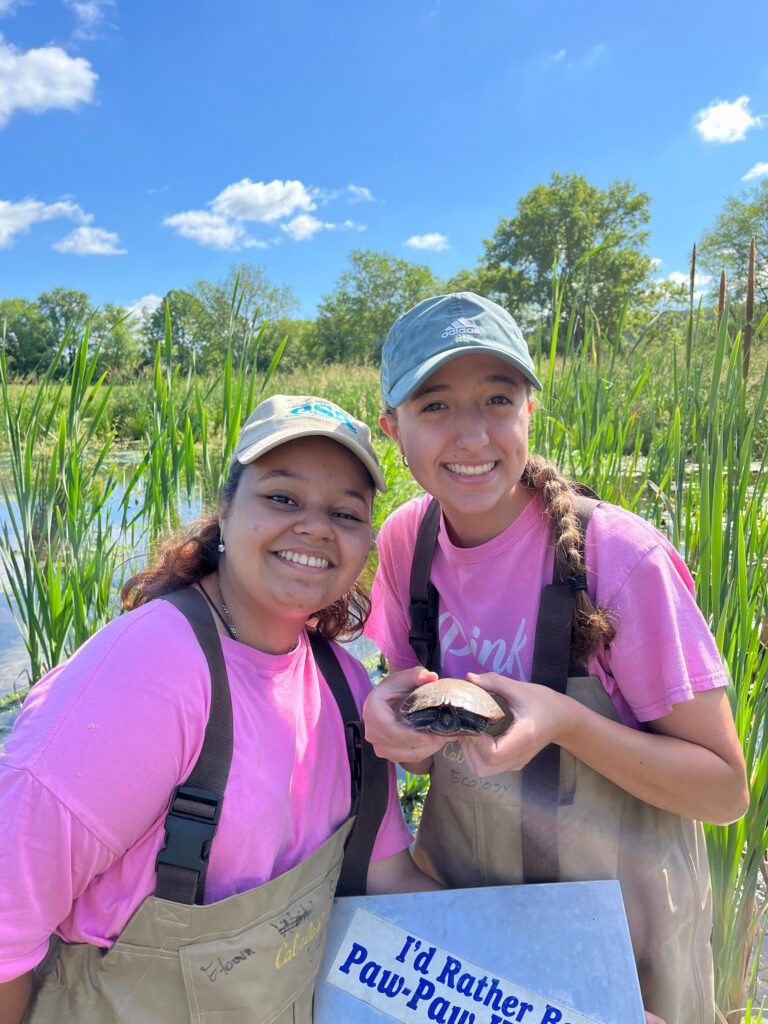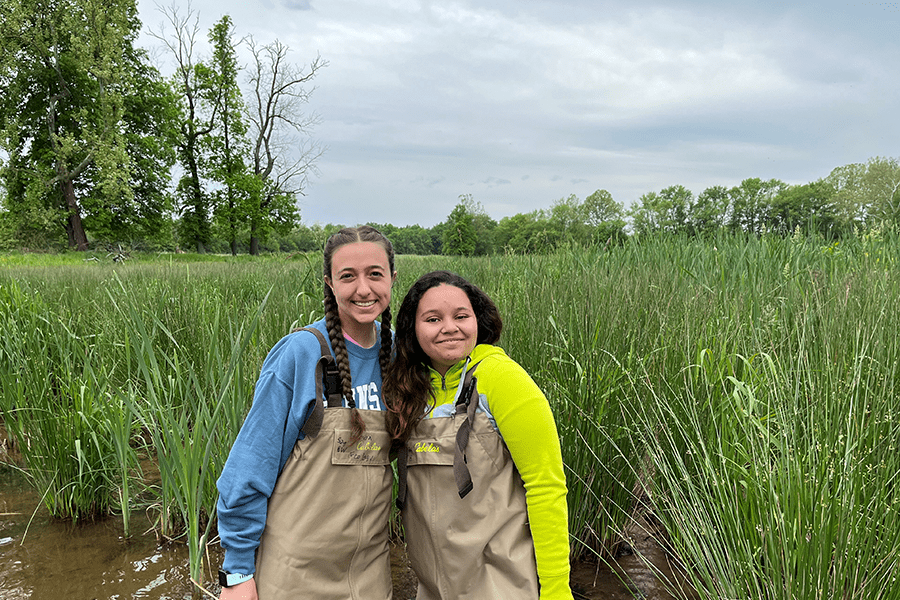Environmental Science majors Makenzi Reed ’26 and Angelymarie Pacheco ’26 are conducting research at the nearby Conewago Creek restored wetland site this summer with faculty mentor Associate Professor of Biology David Bowne to determine what species inhabit the site as part of the Summer Creative Arts and Research Program (SCARP).
Reed and Pacheco’s research is a continuation of a 2022 SCARP project, with the goal of identifying if the spotted turtle, a species of special concern in Pa., is inhabiting the wetland site.
Title of Research
The Effects of Floodplain Restoration on Reptiles and Amphibians
Student Researchers
Makenzi Reed ’26 (Environmental Science major)
Angelymarie Pacheco ’26 (Environmental Science major)
Faculty Mentor
Dr. David Bowne, Associate Professor of Biology
What are you researching?
Reed and Pacheco: Our research project involves conducting surveys of herpetofauna (amphibians and reptiles) at the Conewago Creek restored wetland site. The main goal of this project is to determine if spotted turtles are using this wetland. The techniques of this research include setting and checking traps, as well as documenting the species.
Why did you choose this topic?
Reed: I chose this topic because I am interested in learning how to conserve the spotted turtles and the impact restored wetlands can have on this species. I also am interested in learning the basic field techniques for surveying reptiles and amphibians.
Pacheco: I chose this topic because it will help me broaden my knowledge of herpetofauna, something I have not had exposure to in my college career.
What was the most interesting aspect of this research?
Reed: The most interesting aspect of this research is the fieldwork. The vast amount of biodiversity seen at the site is nothing like I have experienced before. It gives me hope that restored wetlands can improve biodiversity for future generations!
Pacheco: The most interesting aspect of this research is being able to go out into the field and learn all about the biodiversity that exists in the wetland. There isn’t much known about wetlands, and it feels like an amazing career opportunity that can be explored!
What are you hoping to accomplish through this research project?
Reed: I hope to gain experience in working directly with wildlife and learning the best conservation methods for these species. Additionally, I hope this project opens avenues for other research opportunities here at Etown and within my future career.
Pacheco: I hope to accomplish fieldwork experiences, such as learning about setting traps and the procedures that go along with handling wildlife. In addition, I hope to learn the importance of conserving these wetland sites and to improve my collaboration skills, which can help with future research projects.
Talk about working with your mentor. How have they helped you throughout this experience?
Reed: Dr. Bowne takes the time to teach us about each species we trap or see in the wetland. It is his knowledge of these species that motivates me to want to learn more through research. His passion for the topic is evident, and he also addresses career opportunities related to our fieldwork.
Pacheco: Dr. Bowne has been a great mentor throughout this experience. He has pushed me to be my best self and has allowed me to practice important skills while working in the field. He has been very patient and has helped me to explore different research opportunities.
Hear from the faculty mentor — David Bowne
“Angie and Makenzi are a joy to work with. As neither have prior experience working in a wetland, both show excitement in the daily discoveries of what wetlands have to offer. Every fish, crayfish, frog, and turtle are met with a joyful exclamation. They are eager to learn, be it how to identify wetland plants, birds, reptiles, and amphibians, or how to walk in a wetland to not get stuck in the mud. They are also realizing science often results in disappointment.
“We have not yet caught our focal species, the spotted turtle, and while that is disappointing, they are learning to appreciate what we do find. They are sharing these discoveries with the Instagram account @rewetland. Each day, they are posting a new message or focusing on a different species. It is rewarding to have them excited about an underappreciated ecosystem.”

